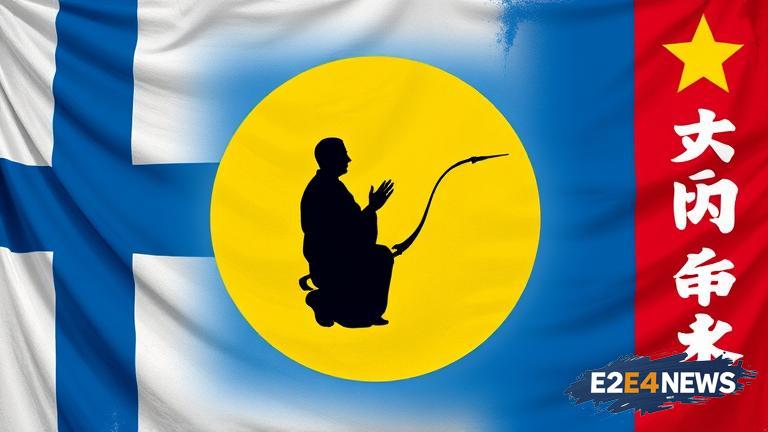The Finnish government has strongly condemned the recent threats made by a former Hong Kong chief against the spiritual movement Falun Gong. The former chief, who has been identified as Leung Chun-ying, made the threats in a recent interview, sparking widespread outrage and condemnation from human rights groups and governments around the world. Finland’s Ministry of Foreign Affairs issued a statement denouncing Leung’s comments, calling them unacceptable and emphasizing the importance of respecting human rights and freedom of religion. The statement also highlighted Finland’s commitment to promoting and protecting human rights globally. Falun Gong, also known as Falun Dafa, is a spiritual movement that originated in China in the 1990s and has been the subject of persecution and human rights abuses by the Chinese government. The movement emphasizes the principles of truthfulness, compassion, and tolerance and has gained a significant following worldwide. Leung’s threats against Falun Gong have been widely condemned, with many seeing them as an attempt to intimidate and silence the movement’s practitioners. The Finnish government’s condemnation of Leung’s comments is seen as a significant move, as it highlights the importance of respecting human rights and freedom of religion. The incident has also sparked concerns about the erosion of human rights in Hong Kong, which has been a major financial and trade hub. The city’s autonomy has been gradually eroded since the 1997 handover to China, with many fearing that the city’s freedoms are being slowly stripped away. The Finnish government’s statement has been welcomed by human rights groups, who have long been critical of China’s human rights record. The incident has also sparked a wider debate about the importance of protecting human rights and freedom of religion, with many calling for greater international cooperation to promote and protect these fundamental rights. The Finnish government’s condemnation of Leung’s comments is seen as a significant step in this direction, as it emphasizes the importance of respecting human rights and freedom of religion. The incident has also highlighted the need for greater awareness and understanding of the persecution faced by Falun Gong practitioners in China. The movement’s practitioners have faced widespread persecution, including arbitrary detention, torture, and forced labor, with many being subjected to forced organ harvesting. The Finnish government’s statement has been seen as a significant move in raising awareness about these human rights abuses and highlighting the need for greater international cooperation to protect the rights of Falun Gong practitioners. The incident has also sparked concerns about the influence of the Chinese government on Hong Kong’s autonomy, with many fearing that the city’s freedoms are being slowly eroded. The Finnish government’s condemnation of Leung’s comments is seen as a significant move in highlighting the importance of protecting human rights and freedom of religion in Hong Kong. The incident has also sparked a wider debate about the importance of promoting and protecting human rights globally, with many calling for greater international cooperation to address these issues. The Finnish government’s statement has been welcomed by human rights groups, who have long been critical of China’s human rights record. The incident has also highlighted the need for greater awareness and understanding of the persecution faced by Falun Gong practitioners in China, with many calling for greater international cooperation to protect their rights.
